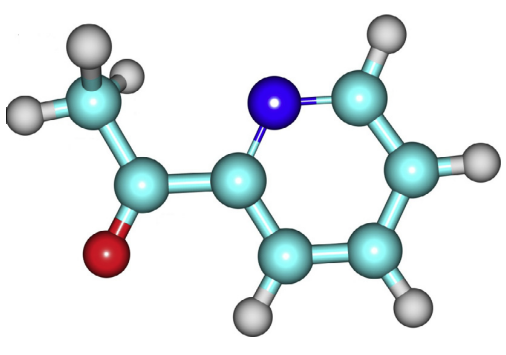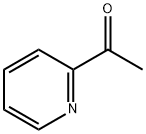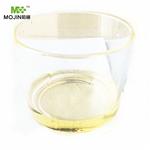Identification
CAS.No.:
1122-62-9
FL.No.:
14.038
FEMA.No.:
3251
NAS.No.:
3251
CoE.No.:
2315
EINECS.No.:
214-355-6
JECFA.No.:
1309
Description
A colorless liquid with tobacco-like aroma.
Regulatory Status
CoE: Used provisionally. Food: 10 ppm
FDA: n/a
FDA (other): n/a
JECFA: ADI: Acceptable. No safety concern at current levels of intake when used as a flavoring agent (2004).
Usage
Reported uses (ppm): (FEMA, 1994)
Natural occurrence
Reported found in wheaten bread, other types of breads, boiled and cooked beef, grilled and roasted beef, lamb (roasted), lamb and mutton liver, beer, several types of brandy, cocoa, black tea, roasted filbert (Corylus avellano), roasted peanut (Arachis hypogea), heated beans, Bantu beer, coriander seed (Coriandrum sativum L.) and other natural sources.
Production
It is obtained by bromination of ethylpyrazine, followed by oxidization to obtain it.
Description
2-Acetylpyridine: a widely used food additive
2-Acetylpyridine, also named 1-(2-pyridinyl)ethanone or methyl 2-pyridyl ketone, is a "popcorn"-like compound and often used as the food additive and flavouring substance in tobacco, ice cream, milk, cooked rice and other food products. Generally, 2-acetylpyridine exists in a colorless to yellowish liquid and can be naturally found in rice, hazelnuts, Yahonkaoluo leaves and cocoa. Studies have also suggested that it can be used as an intermediate to synthesize a series of chemical compounds with antiviral activity. For example, Abid et al. prepared the various oxime ether derivatives of 2-acetylpyridine and evaluated their antiamoebic activities against the HM1:IMSS strain of E. histolytica[1].

Chemical Properties
A colorless liquid with tobacco-like aroma
Chemical Properties
clear colorless to slightly brown liquid
Occurrence
Reported found in wheaten bread, other types of breads, boiled and cooked beef, grilled and roasted beef, lamb
(roasted), lamb and mutton liver, beer, several types of brandy, cocoa, black tea, roasted filbert (Corylus avellano), roasted peanut
(Arachis hypogea), heated beans, Bantu beer, coriander seed (Coriandrum sativum L.) and other natural sources.
Uses
2-Acetylpyridine used as flavoring agent. It is also used in application for food additive.
Uses
2-Acetylpyridine is an aroma and flavour compound present in foods.
Definition
ChEBI: 2-Acetylpyridine is an aromatic ketone.
Preparation
From ethyl picolinate
Aroma threshold values
Detection: 19 ppb
Taste threshold values
Taste characteristics at 10 ppm: cornmeal with nutty, bready nuance
General Description
2-Acetylpyridine is a volatile flavor compound found in rye bread crust and roasted sesame. It has also been identified as a key contributor to the “scented rice”-like aroma in Yahonkaoluo leaves and Xiangjing-8618 rice.
References
[1] Cuiping Zhai, Xuejun Liu, Fenghua Cui . “A combined experimental and theoretical study on vibrational spectra of 2-acetylpyridine.” Spectrochimica Acta Part A: Molecular and Biomolecular Spectroscopy 134 (2015): Pages 90-95
[2] Camila V. Garcia . “Cobalt(III) complexes with 2-acetylpyridine-derived Schiff bases: Studies investigating ligand release upon reduction.” Polyhedron 124 (2017): Pages 86-95.





